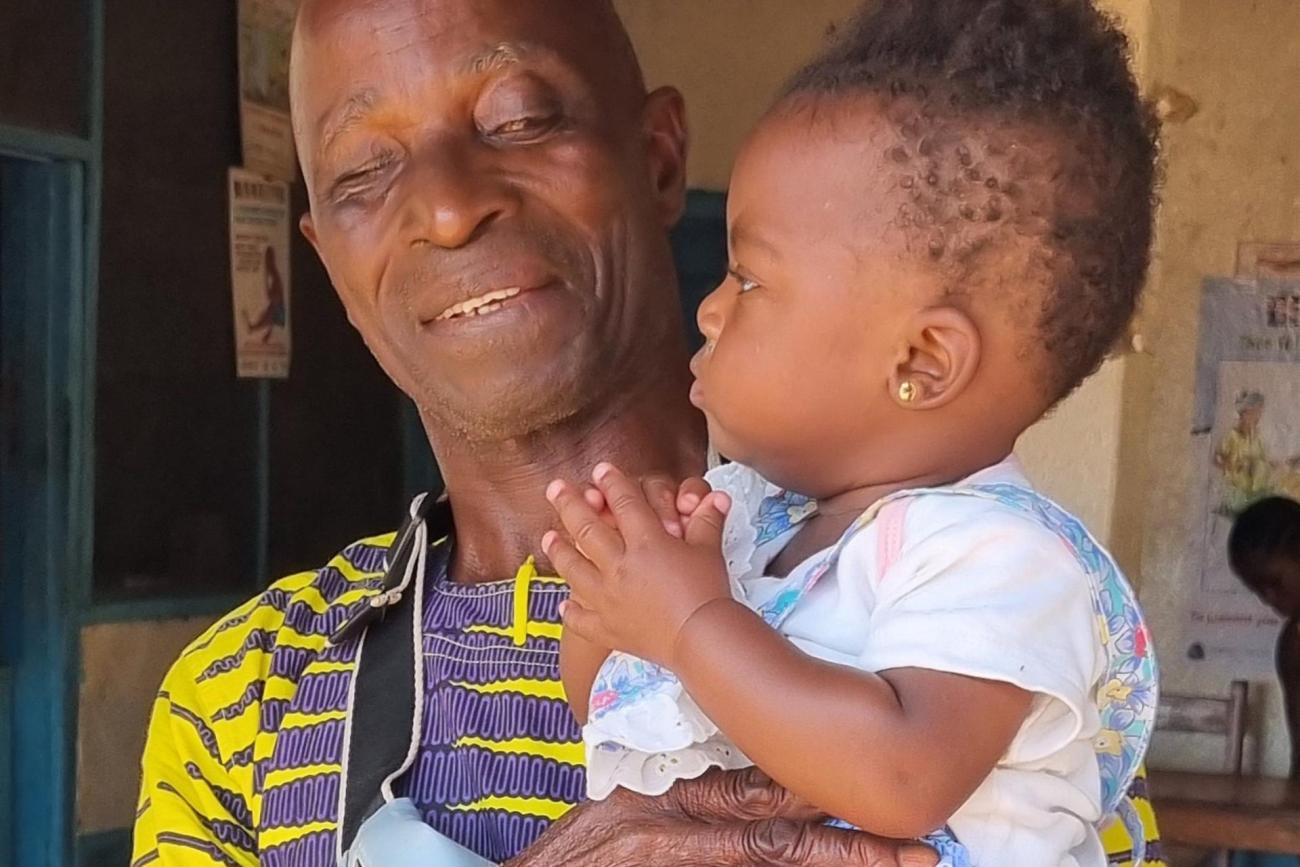Esther's smile could light up a room as she giggled and cooed during her follow-up visit to the Ganta community clinic. At just nine months old, Esther had already faced significant health challenges, including severe acute malnutrition. Her grandfather, Wotoe Dahn, who works as a registrar at the clinic, explained that Esther's health had deteriorated rapidly until they sought help at the clinic.
With trained health workers and nutrition interventions in place, the clinic was able to diagnose and treat Esther's malnutrition. Screener Teewon Karnue noted that Esther was so weak and thin when she arrived that many people in the community doubted that she would survive. However, Esther gradually gained strength and weight, eventually reaching a healthy 5 kg and being discharged from the program.
Unfortunately, Esther's relapse was a reminder that addressing malnutrition requires ongoing support and education. Mr. Karnue explained that Esther's grandparents, who were raising her after the loss of her mother and twin sister, were struggling to provide adequate complementary feeding due to their low income. However, with counseling and education from the clinic, Esther's grandparents learned to incorporate a variety of foods, including plantains, papayas, and eggs, into her diet. The clinic also provided micronutrient powder and vitamins to support Esther's nutritional needs.
Esther's story is just one example of the life-saving impact of nutrition interventions in Liberia, co-funded by Power of Nutrition and the Government of Ireland. Through UNICEF's partnership with Action Against Hunger and the Government of Liberia, these interventions are implemented at the county level to identify and treat malnourished children like Esther.
Mr. Dahn expressed gratitude for the support Esther received and emphasized the need for continued investment in local communities. "We don't have much here," he said, "but if we could get seed and tools to plant a garden and grow our food to feed children like Esther, it will really help." Esther's story is a reminder that addressing malnutrition requires ongoing support and investment, but the impact on children's lives can be truly transformative.






